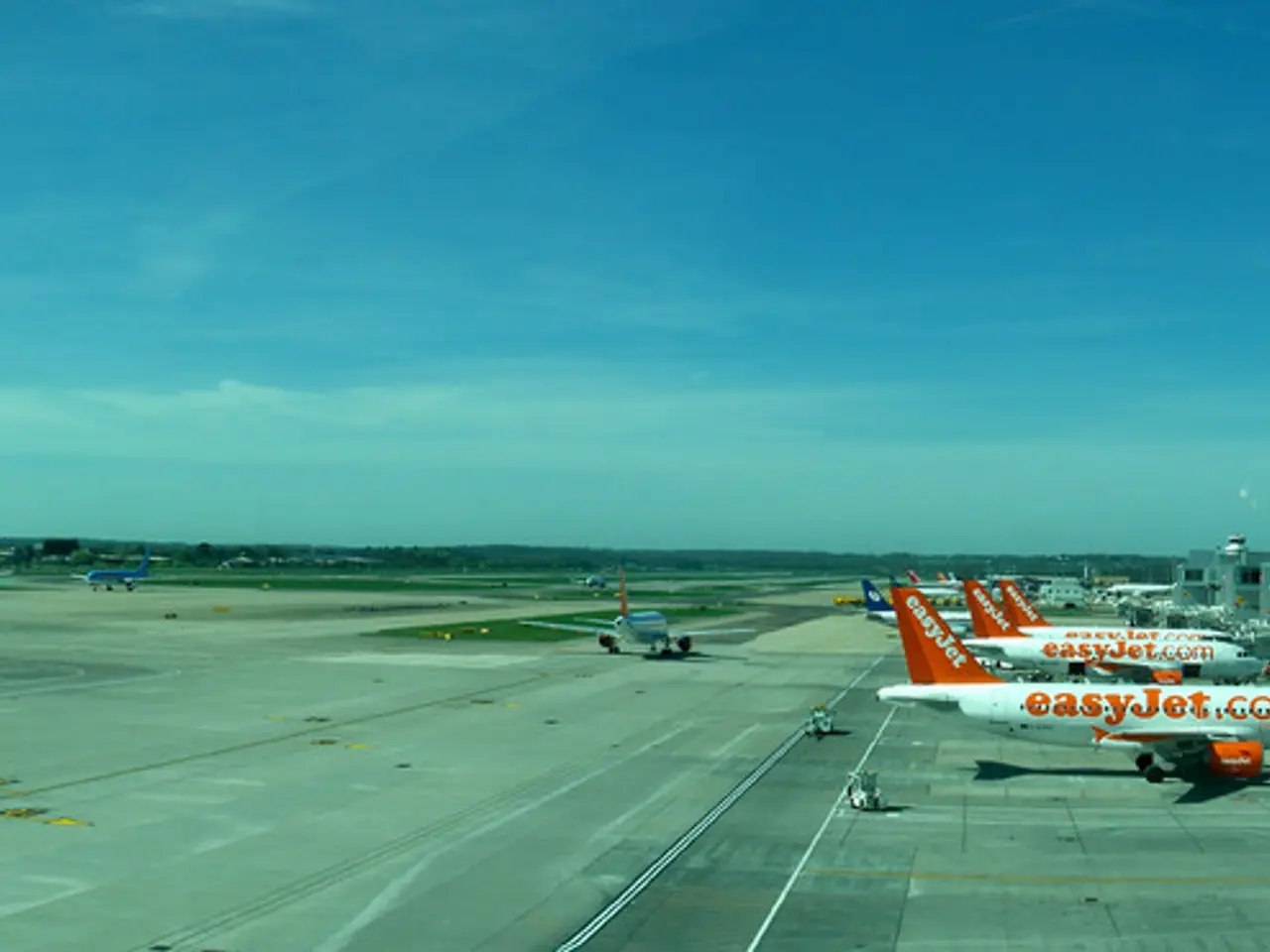Investment of $4 billion by Turkish companies and a global consortium earmarked for Damascus airport development
In a significant move, an international consortium, including Kalyon Holding, Cengiz Holding, TAV Construction, UCC Holding from Qatar, Assets Investments from the U.S., and potentially others, has signed a $4 billion agreement to expand Damascus International Airport. This agreement marks one of the largest infrastructure projects in Syria in years and is expected to bring a qualitative shift in Syria's infrastructure and economic life.
Several deals have already been announced, including a $6.4 billion investment from Saudi Arabia last month. The aim is to increase the airport's annual passenger capacity to 31 million within eight years. The signing ceremony for these agreements was attended by Interim President Ahmed al-Sharaa and U.S. special envoy for Syria Tom Barrack.
Talal al-Hilali, the head of the Syrian Investment Authority, announced these plans at a ceremony at the presidential palace. The projects being undertaken by the consortium will extend across Syria.
Energy and Infrastructure Revival
Syria's infrastructure investments are aligned with regional trends emphasizing energy export capacity and upgrading physical infrastructure damaged or degraded during years of conflict. The Banias pipeline revival highlights a strategic push in oil and gas infrastructure. Iraq and Syria have agreed to explore reviving the Banias pipeline to export Iraqi crude oil through Syrian and Lebanese territories.
The Damascus International Airport expansion is understood to be part of these ongoing initiatives. In July, Syria signed an $800 million deal with UAE-based company DP World to develop the port of Tartus.
Reconstruction and Modernisation
The consortium also signed a $7 billion strategic cooperation agreement last May, which includes a 5,000 megawatt energy project expected to generate about 35 billion kilowatt-hours annually. Syria held a signing ceremony for agreements worth more than $14 billion, including a $2 billion investment for a Damascus metro and more than $2 billion for a mall and two towers developments.
The United Nations has estimated post-war reconstruction costs in Syria to be more than $400 billion. Tom Barrack, the U.S. special envoy, congratulated Syrian authorities on "another great accomplishment", stating that Syria will witness the rise of a "new hub" in "trade and prosperity".
These large-scale infrastructure investments in Syria notably include efforts to revive and expand critical energy and transportation infrastructure, with a key focus on the Banias crude oil pipeline and the Damascus International Airport expansion. Syria's infrastructure investments are a testament to the country's commitment to rebuilding and modernising its economy, aligning with regional economic recovery needs.
[1] Source: Investment in Syria's Infrastructure: A New Dawn
[3] Source: Syria's Infrastructure Investments: A Regional Perspective
[4] Source: Middle East Infrastructure Investments: Trends and Opportunities
The Damascus International Airport expansion, a significant portion of Syria's infrastructure revitalization, is expected to increase the airport's annual passenger capacity and is part of ongoing efforts to upgrade Syria's physical infrastructure. [Investment in Syria's Infrastructure: A New Dawn]
The infrastructure investments in Syria, including the 5,000 megawatt energy project, aim to modernize the country's economy and align with regional economic recovery needs. [Syria's Infrastructure Investments: A Regional Perspective]




